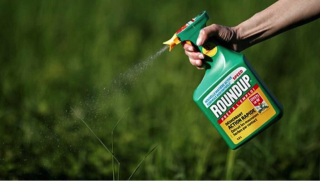
Your Health Magazine
4201 Northview Drive
Suite #102
Bowie, MD 20716
301-805-6805

More Legal and Health Articles
The Uses and Disastrous Side Effects of Glyphosate

Glyphosate is the primary active ingredient in weed-killer products like Roundup. It is commonly used in farms and home gardens/lawns. These products usually contain glyphosate along with other substances.
However, glyphosate can cause cancer and lead to serious harm. If you were exposed to Roundup and developed non-Hodgkin’s lymphoma or another type of cancer, you might be eligible for compensation. Roundup lawsuit attorneys can help in such situations. Their experience in class action lawsuits and their connections with experts in the medical industry make them the ideal people to represent you.
What is Glyphosate?
Glyphosate is an herbicide that aims to wipe out specific plants and grasses, control how crops grow, and prepare them for harvest when they are ripe. This is a nonselective herbicide and will kill almost any plant it touches. It prevents plants from producing specific types of proteins needed for plant growth.
Glyphosate is one of the most widely used herbicides and has been around since 1974. It is applied to lawns, gardens, forests, and agriculture.
Roundup and Glyphosate
Glyphosate is the active ingredient in Roundup. However, Roundup also contains several other ingredients. These ingredients may include adjuvants for carrying the herbicide onto plants, penetrating roots, and preventing foaming, or they can be dyes.
The U.S. Environmental Protection Agency (EPA) suggests that glyphosate is unlikely to cause cancer in humans. However, there’s concern that the other ingredients in Roundup might be more dangerous than glyphosate.
The World Health Organization (WHO) also claims that glyphosate is probably carcinogenic. Additionally, there are also numerous lawsuits that claim that exposure to Roundup led to cancer.
Uses of Glyphosate
Although glyphosate is multifunctional, it is used everywhere, from home gardens to large agricultural lands. It is similar to what many farmers do during food production.
It’s often used on:
- Fruit and vegetable crops
- Canola, corn, cotton, soybeans, sugar beets, and wheat
- Plantings, lawns, greenhouses, and flowers
- Aquatic plantations
- Forest planting
Genetically modified corn and cotton are the top glyphosate users across all crops.

Side Effects of Glyphosate
If glyphosate is ingested, it induces symptoms like nausea and vomiting. It will also cause itchiness and irritation if it stays on your skin or eyes.
Glyphosate is linked to respiratory system (lung/nose) irritation in humans and also causes asthma-like symptoms. There is no evidence that exposure to glyphosate causes asthma among the general population of users, but it should be noted that workers who were exposed to large volumes over many years are more likely than others to suffer from these respiratory effects.
Animal studies have also suggested that glyphosate may have the potential to cause developmental effects (lower fetal body weights and fetal bone abnormalities) at doses high enough to produce maternal toxicity.
If you have been exposed to Roundup Weed Killer and diagnosed with non-Hodgkin lymphoma or any other medical conditions, then contact an experienced attorney today! They will see what happened with your case and determine if you fall within the requirements of these lawsuits to get compensation.
Other Articles You May Find of Interest...
- A Practical Guide to Personal Injury Compensation: What’s Included and What’s Not
- 5 Signs the Insurance Adjuster Isn’t on Your Side (And What to Do Next)
- Brain Injuries at Birth: What Every Parent Should Know About Their Rights
- Common Injuries Bicycle Accident Victims Face
- Medical Chronology and Its Impact on IME Conclusions
- How Does a Birth Injury Lawyer in Columbus Help Distressed Families?
- How Planning Your Future Health and Legal Affairs Improves Long Term Wellness














